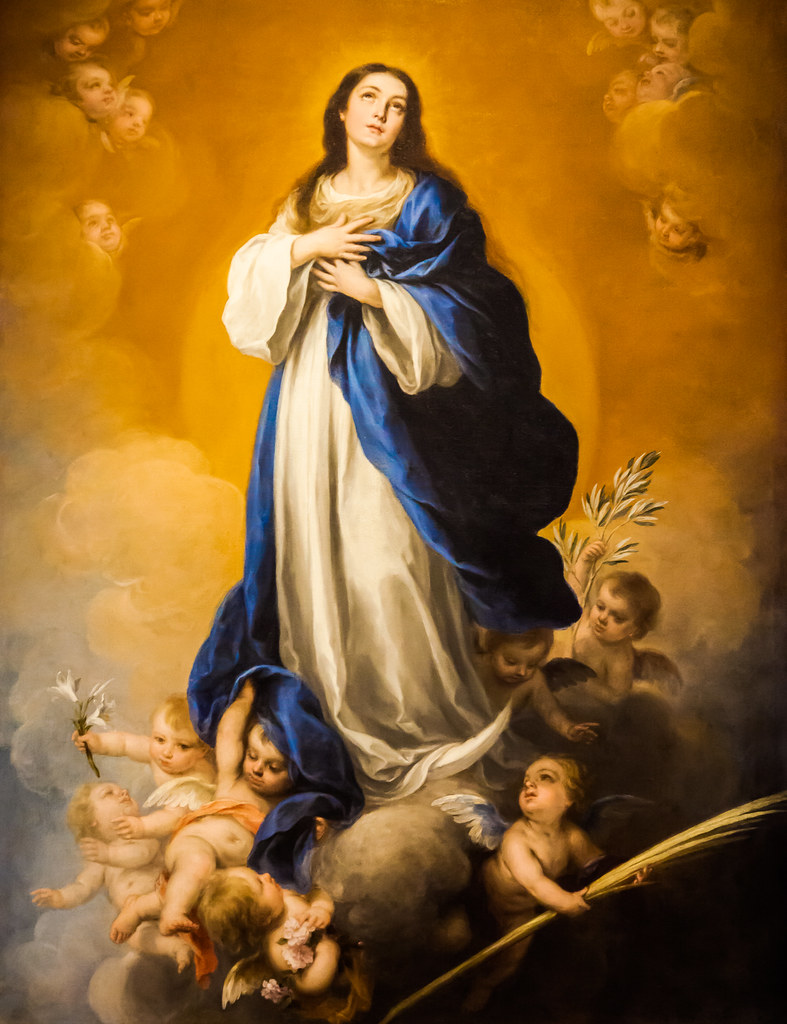Tota pulchra es, Maria, et macula non est in te
 |
| via |
Who is she that cometh forth as the morning rising, fair as the moon, bright as the sun, terrible as an army set forth in battle array?
Hayle, jentilest of Jesse in Jewes generacioun,
Haile, welthe of þis worlde, all welthis is weldand,
Haile, hendest, enhaused to high habitacioun,
Haile, derworth and dere is þi diewe dominacioun,
Haile, floure fressh flourissed, þi frewte is full felesome,
Haile, sete of oure saveour and sege of saluacioun,
Haile, happy to helde to, þi helpe is full helesome.
Haile, pereles in plesaunce,
Haile, precious and pure,
Haile, salue þat is sure,
Haile, lettir of langure,
Haile, bote of oure bale in obeyesaunce.
Thomas' speech praising Mary, The Assumption of the Virgin l. 132-43, in The York Plays: A Critical Edition of the York Corpus Christi Play as recorded in British Library Additional MS 35290, edited by Richard Beadle, Oxford University Press for the Early English Text Society, 2009.
The translation of this lovely German Christmas song is:
There is a rose sprung up,
From a tender root,
As it was sung to us in the old days,
From Jesse came its lineage.
And it has brought forth a bloom
In the middle of the cold winter
Halfway through the night.
The rose which I mean,
Of which Isiah told,
Has alone brought us
Mary, the pure maid.
According to God's eternal plan
Has she a child borne
Halfway through the night.
From the heart we ask you
Mary, gentle rose,
Through this flower's pain
Which it has felt,
Will thou help us
That we may make for Him
A home beautiful and fine.
(Es klingt besser auf Deutsch!!)

No comments:
Post a Comment